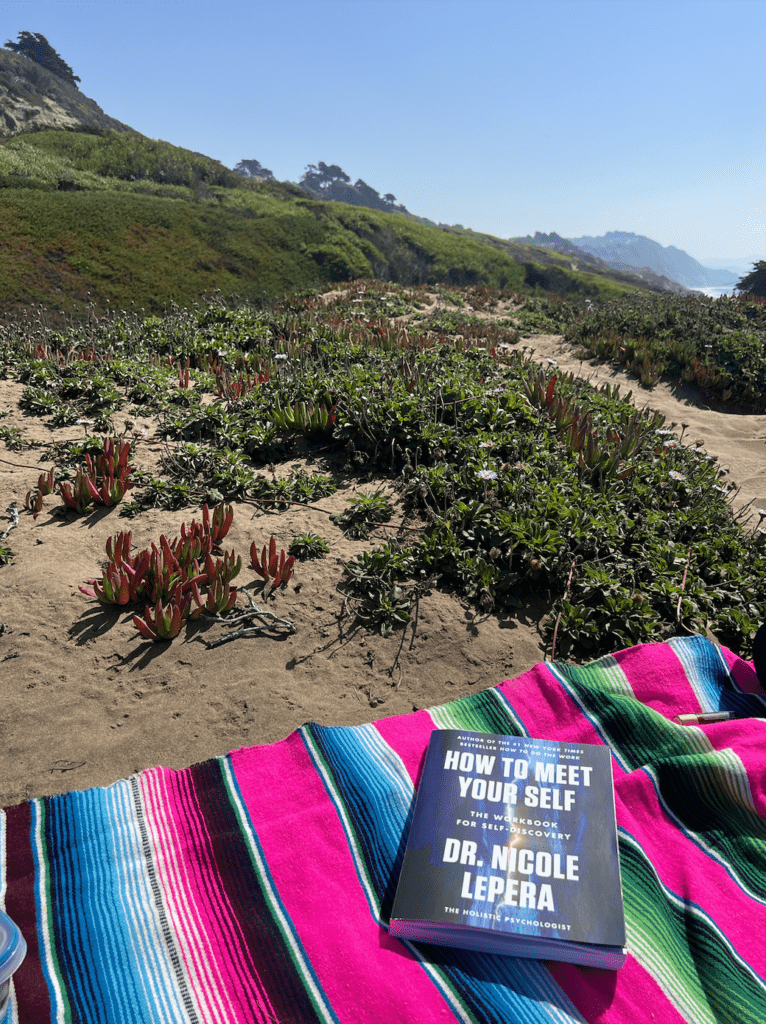Remember growing up & seeing a poster that touted “Readers are Leaders” in every library? Turns out, they were right. We grow up with whatever mindsets we were exposed to by our caregivers, & these mindsets helped us navigate through our home environments. However, as we grow older, we might realize that the coping skills we learned when we were younger no longer benefit us. Maybe we learned it wasn’t safe to express our emotions & now we aren’t able to communicate them to our partner. Maybe we learned it wasn’t okay to trust our decision-making abilities & now we lack self-confidence.
Reading is one of the ways that allow us to see things from other perspectives because it opens the possibility that maybe there are different ways of living & being after all.

1. One of my favorite books I’ve read (& one of the few I’ve reread) is What Happened to You: Conversations on Trauma, Resilience and Healing co-authored by Dr. Bruce Perry & Oprah. One of the reasons I like it is that it is jam-packed with scientific research but it’s written in an interview-style, easily digestible format. They discuss the physiological aspects of trauma & how they can be triggered by something as simple as a scent or phrase. They teach about the neuroscience behind trauma & how we need to work within the parameters of an individual’s stress response if we want to be able to address outward manifestations of inward struggles. They shift the conversations from “what’s wrong with you?” to “what happened to you?” in the hopes of expressing empathy & promoting vulnerability. If you or someone you love is navigating trauma, I would highly recommend this read.
2. I’ve often heard the phrase: “everyone is doing the best they can with what they have.” The more I’ve helped clients & friends unpack childhood wounds, the more I realize that parental gratitude can co-exist with recognizing the gaps that our parents may have had. Particularly if you grew up with parents who were in survival mode, such as ones who had recently immigrated or were living in poverty or domestic violence, they may have not had the capacity to put food on the table AND teach you the ins-&-outs of emotional intelligence. Adult Children of Emotionally Immature Parents: How to Heal from Distant, Rejecting or Self-Involved Parents by Lindsay Gibson is a must-read if you’re feeling grief over the relationship you didn’t have with your parents growing up. She talks about validating your experiences, setting boundaries, having empathy, & techniques to reparent yourself along the way.
3 & 4. If you want books that are a beautiful blend of science & practice, there are two at the top of the list: How to Do the Work: Recognize Your Patterns, Heal from Your Past, and Create Your Self by Dr. Nicole LePera & Think Like a Monk: Train Your Mind for Peace and Purpose Every Day by Jay Shetty. Both of these books have practical tools from breath work to journal prompts that will help you expand your self-awareness (the secret sauce for growth). They’re both longer reads, & though we all love to say how many books we’ve read so far, I’d encourage you to take your time in order to be able to follow along with the tools they share. You never know, you might find one that changes your life!
5. The books aforementioned are all more dense & heavy reads, but you can’t be in the mood for those allll the time. One book I keep gravitating to, especially as a nighttime read, is the classic The Alchemist by Paulo Coehlo. Its story of adventure, mayhem & mishaps remind you that as long as you’re moving forward, things will always work themselves out the way they’re supposed to. My only qualm is that it’s a real page-turner that is far too short, but I’ve reread it about five times & I always find new parts that stick out depending on what season of life I’m in.
What books would you recommend? Let me know in the comments—I’m always looking for a new read (even if I haven’t finished my last one yet, oops! I’m a book hopper & I’m okay with that).
